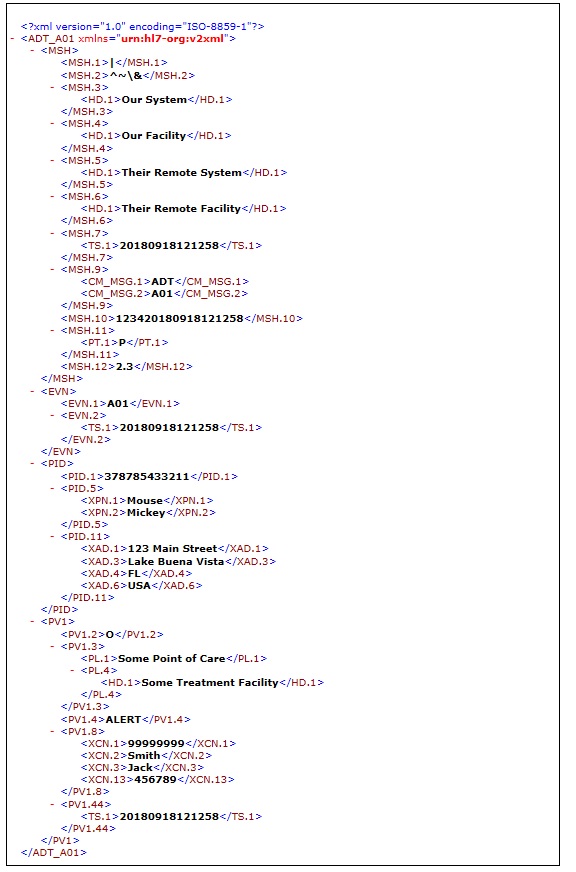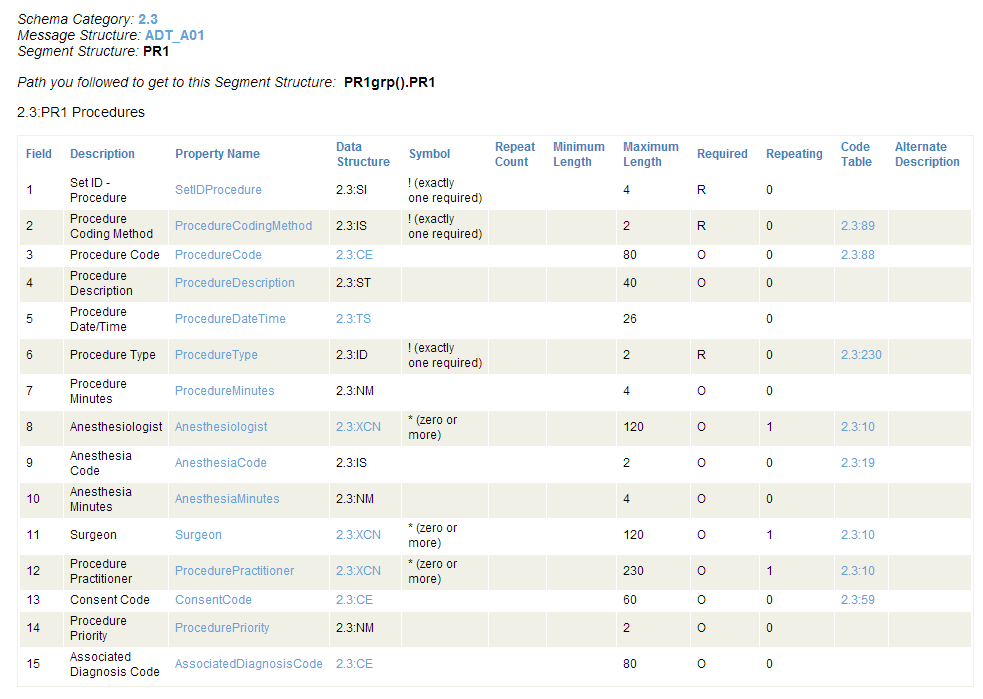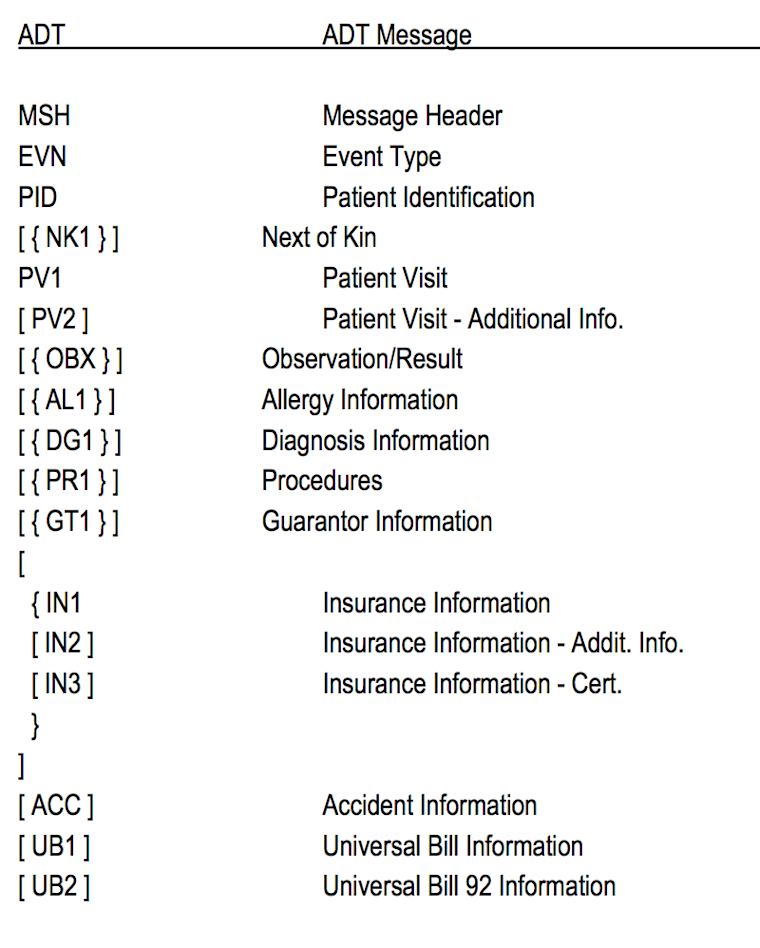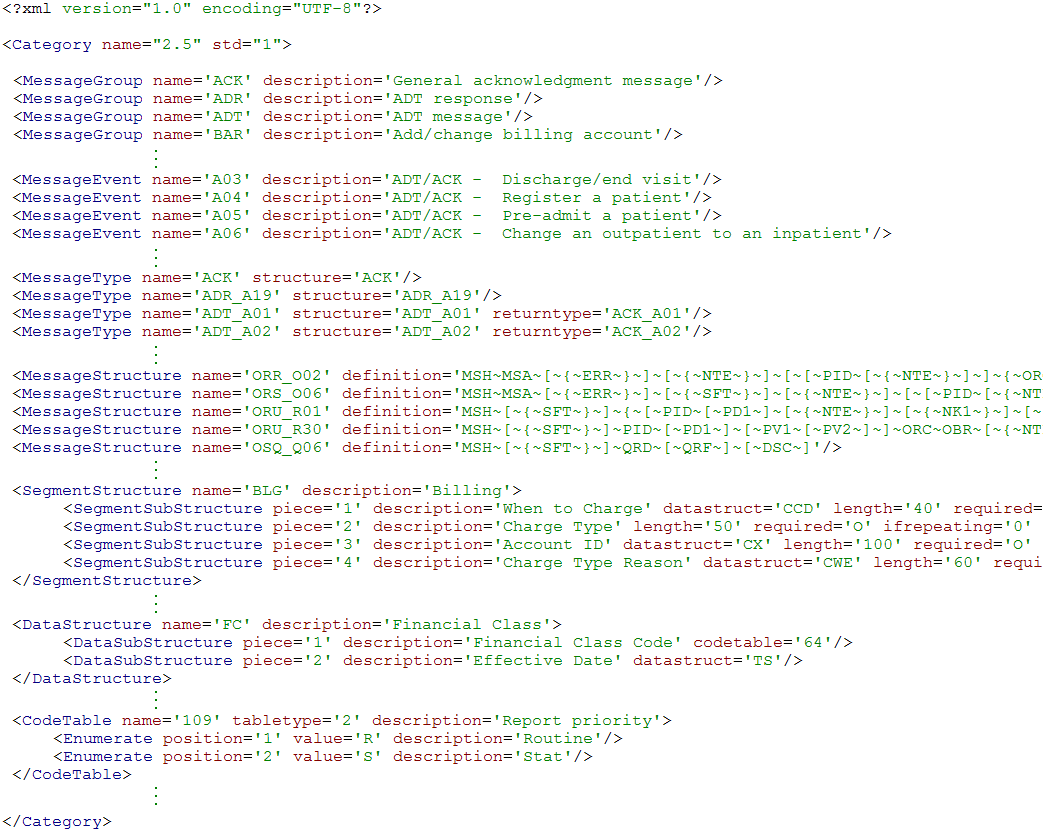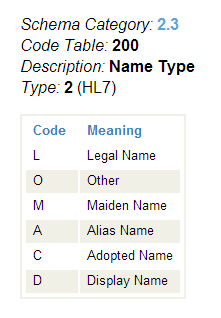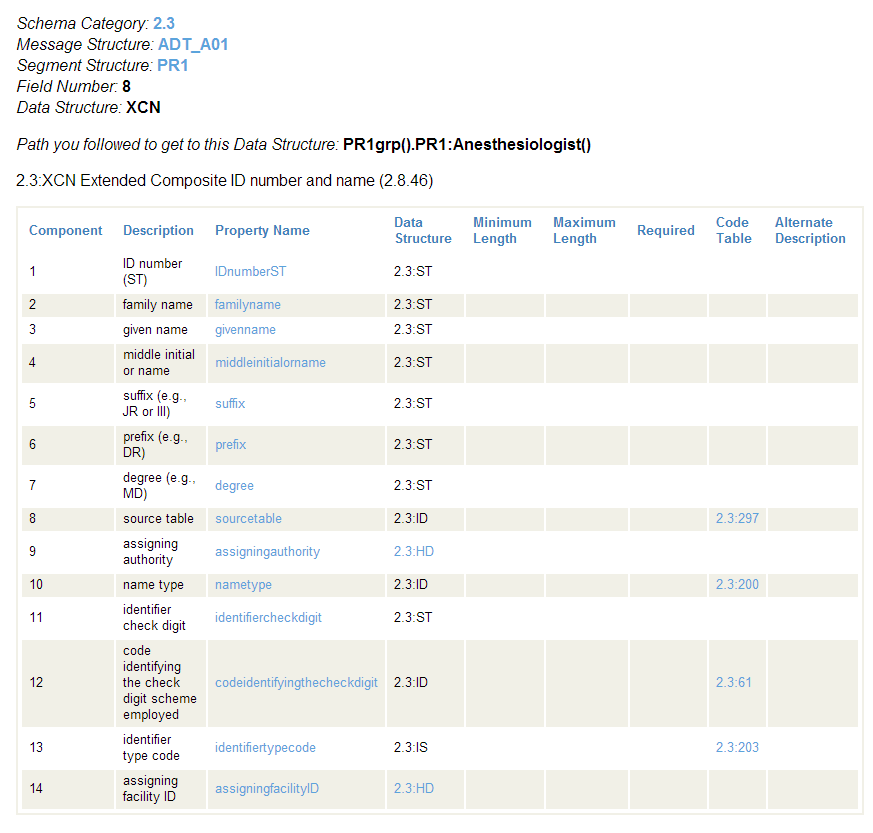Adt Message Type - There are 51 different types of ADT messages that are used for various trigger events such as admissions cancellations of admits merging patient data communicating patients demographic information. The HL7 ADT message type is used to send and receive patient demographic and healthcare encounter information generated by source systems.
An Example To Help You Understand How Does Adt Work Understanding Helpful Adt
Some of the most commonly used ADT messages include.

Adt message type. ADT-A05 patient pre-admission. Trigger events are instrumental in driving message flow because they determine when and where messages go based on the type of event that has occurred. ADT-A01 patient admit.
Each type of ADT message provides specific clinical data as well as the MSH header data containing the message type and time stamp. Some of the most commonly used ADT messages include. ADT-A02 patient transfer.
Application management query message. ADT-A11 cancel patient admit. ADT-A02 patient transfer.
Message ADT Messages Supported by SecureFlow Pro The following messages are supported by the SecureFlow Pro system. ADT is the HL7 message type and A01 is the trigger event. Some of the most commonly used ADT messages include.
HL7 Message Type Action. There are 51 different types of ADT messages that are used for various trigger events. For those environments that may require changes to these other subordinate identifiers because of the A40 merge patient-patient identifier list event it is required that the old and new identifiers be a tightly coupled pair.
ADT-A02 patient transfer. All message types contain message events also called events. ADT-A10 Patient arriving - tracking ADT-A11 Cancel admit visit notifi cation ADT-A12 Cancel Transfer ADT-A13 Cancel discha rgeend visit ADT-A14 Pending Admit ADT-A15 Pending Transfer ADT-A16 Pending Discharge ADT-A17 Swap Patients ADT-A18 Merge Patient Inform ation ADT 20 - 40 ADT-A20 Bed Status Update ADT-A21 Patient goes on a leave of absenc e ADT-A22.
ADT-A03 patient discharge. What are the various types of hl7 ADT messages. Each Test Case has a workflow with specific message types that fit the workflow.
Appendix E Common ADT HL7 messages A04 EVENT OUTPATIENT ADMISSION MSH20120731102052ADTA0420731172052000155374P2218. A04 is the Registration Message. ADT-A04 patient registration.
For example the AdminVisit Notification message event A01 and DischargeEnd Visit message event A03 are unique messages contained by the Patient Administration message type ADT. The SS_3_1_ED_Visit_Admit workflow includes all 4 ADT message types. ADT-A11 cancel patient admit.
ADT-A08 patient information update. ADT-A04 patient registration. Merge Patient Identifier List.
They are not individually addressed in the following specification. In this way what are the various types of hl7 ADT messages. The event code should be.
ADT messages are extremely common in HL7 processing and are among the most widely used of all message types. ADT A01 - admitvisit notification ADT A03 - dischargeend visit ADT A04 - register a patient ADT A05 - pre-admit a patient. Blood product order message.
ADT feeds capture important elements pertaining to a patients demographic and clinical information right from their name and address to their medical record number. ADT-A08 patient information update. The HL7 organization has assigned each message.
There is a defined format of each message type and trigger event within a specific HL7 version. The messages usually communicate. 59 rows These ADT event codes are up to date with HL7 282 standards.
This event and the message syntax do however allow for the specification of any other new subordinate identifiers in addition to the PID-3 - Patient Identifier List identifier. ADT-A12 cancel patient transfer. 533 Discharge a patient End Visit Message Type ADTA03 ACKA03 109 534 Register a patient Message Type ADTA04 ACKA04 110 535 Pre-admit a patient Message Type ADTA05 ADT.
ADT-A01 patient admit. A patients demographics- name insurance address medical record number etc. 08 Message Type 08 Event Type 09 Message Control ID 10 Processing ID 11 Version ID 12 Sequence Number EVN SEGMENT 01 Event Type Code.
Application management data message. Moreover an ADT-A01 message is known as a patient admit message in the HL7 Standard. Update Patient Information.
You can think of an event as a unique type of message grouped within a particular message type. The ADT message is one of the most common messages in HL7. Patient Encounter Management v25 ADT A01 ADT_A01.
ADT-A03 patient discharge. ADT messages are important in HL7 communications because they provide vital data about the patient and why the message is being sent. An electronic notification that a given patient has undergone an ADT event.
ADT-A05 patient pre-admission. Admit Discharge and Transfer. The ADT messages contain patient demographic visit insurance and diagnosis information.
What type of data do ADT feeds capture.
Http Www Testingtech Com Cn Item Filedown Asp Id 3174
The Message Level Profile For Adt Message And Field Level Profile For Download Scientific Diagram
Hl7 Programming Using Net And Nhapi Creating Hl7 Messages Saravanan Subramanian
The Message Level Profile For Adt Message And Field Level Profile For Download Scientific Diagram
Hl7 Schemas And Available Tools Ensemble Hl7 Version 2 Development Guide Cache Ensemble 2018 1 4 2018 1 5
Hl7 201 The Admission Discharge Transfer Adt Message Datica Academy
Hl7 Message Component Mulesoft Documentation
Sample Hl7 Adt A04 Message
The Board Cafe Bar Coming Soon Poster Design Coffee Poster Design Cafe Posters Cafe Quotes
Http Sapabapcentral Blogspot Com 2020 09 Designing For Abap Oop And Coding Against Interfaces With Text Based Diagraming Tool Htm Coding Text Based Interface
Creating Custom Schema Categories Ensemble Virtual Documents Cache Ensemble 2018 1 4 2018 1 5
Hl7 Schemas And Available Tools Ensemble Hl7 Version 2 Development Guide Cache Ensemble 2018 1 4 2018 1 5
Hl7 Programming Using Java And Hapi Creating Hl7 Messages Saravanan Subramanian
Hl7 Schemas And Available Tools Ensemble Hl7 Version 2 Development Guide Cache Ensemble 2018 1 4 2018 1 5


